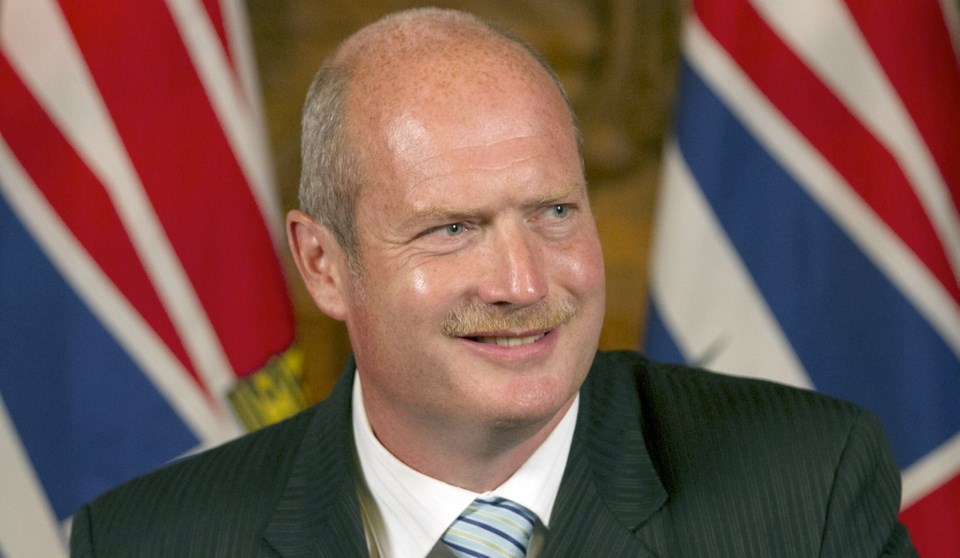 British Columbians should give Tuesday’s provincial budget a quick once over, and then give themselves a quiet pat on the back.
British Columbians should give Tuesday’s provincial budget a quick once over, and then give themselves a quiet pat on the back.
There are still holes in the government’s vision of how this corner of the world works, undeniably. There are still shortcomings that leave people struggling on their own, when they should be getting help. There is still a major, expensive showdown to be resolved in the school system.
But step back and compare B.C.’s current situation — and its potential future — with any other province in Canada, and nearly any jurisdiction in the world. Any reasonable comparison shows this place is on a much sounder footing than many others.
This might sound like cheerleading for the B.C. Liberal government. It’s not. It’s appreciation for B.C.’s collective will. The government might have designed the plan. But British Columbians collectively executed it.
Many gasped in shock in 2008 after the banking system shuddered to a halt for a few days, and it looked like the entire economy was going to grind to a halt.
The system staggered on. Even far removed from the epicentres of the financial crisis, the B.C. economy has spent five years limping back from the brink. Tuesday’s second consecutive balanced budget shows we’re far enough away from the edge now to take a breath and appreciate it.
The government deserves some marks for overseeing the struggle. But people made some kind of implicit decision to grudgingly accept most of the cuts, curtailments and postponements. And it’s that four years of collective scrimping that produced a balance sheet that is the envy of every other province.
A particular share of the credit goes to the public service. There are 386,000 people who make their living in some sphere of the public service. Their contracts over the past several years for the most part have been marked by restraint, flexibility and acceptance of the need to be moderate.
Another round of bargaining is underway and some early progress has been made. The mandate allows public-sector unions to make a calculated gamble — sign a deal and hope for a bonus raise if economic growth beats formal expectations.
If the chance pays off, they will deserve the win.
Today, only two provinces have balanced budgets, and Saskatchewan’s is a little iffy. It’s the contrast with Alberta and Ontario that brings home how much faster B.C. emerged from the meltdown. B.C. is years ahead of the schedule others have set to reach the fundamental benchmark of a balanced budget. And some have no realistic expectation of reaching that point for years.
B.C. does well in most other comparisons, as well. The credit rating is three or four grades ahead of many other provinces. Each grade is a savings in debt costs.
Even with never-ending growth in debt, B.C. leads in the measurement of that debt to the economy. Quebec’s debt-to-GDP ratio is 56 per cent. Ontario’s is 37. Canada’s is 33. B.C.’s is 18.5 per cent.
In four pages of tax comparisons across Canada, B.C. is well-placed by any measure.
It’s a measure of how fortunate this province is, that some of the critical questions Tuesday were about the “prosperity fund.” When you’re arguing about the timing of your prosperity fund, in a country where public-sector prosperity is hard to come by, you know something is going right.
There’s no news of any consequence in the budget. Details will be unpacked over the next few weeks. The shortcomings in post-secondary funding and discrepancies between the government vision and the actual record on things such as job creation will be explored.
There’s a gap between the throne speech talk last week and the allocation of money this week.
But in relation to other provinces, tabling a second balanced budget with a plan for two more to come is a significant achievement. The problem is that a return to genuine prosperity — real service increases, huge surpluses and big debt pay-downs — is still at least four years away. And it seems to depend on one thing: LNG.
The three-year plan is three more years of scrimping. Whether people will have the patience for that will shape the next term.



